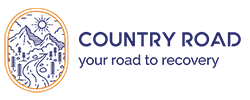While not mutually exclusive, If you talk to people who’ve been sober for a while you’ll generally find that their journey started on one of two paths - going to Alcoholics Anonymous or going to rehab. These are definitely not the only ways to get sober, but they are two of the most common. So how do you decide which one is right for you? Let’s dive into the key differences, benefits, and challenges of each to help you make an informed decision.
The Importance of Choosing the Right Path
Before comparing these two approaches, it’s important to recognize that recovery is not one-size-fits-all. Each individual has unique needs, challenges, and goals, and what works for one person may not work for another. Whether you choose AA or rehab, the goal remains the same: sobriety and a healthier life. The key is understanding which approach offers the best structure, support, and resources for your specific situation. It’s also not uncommon to go into a treatment program and then get introduced to AA. These two paths can often be intertwined - it’s not always a this or that situation.
What Is Alcoholics Anonymous?
AA is a 12-step program that has been around since the 1930s. It focuses on mutual support through peer-led meetings and the belief in a higher power. AA’s core strength lies in its accessibility—you can find a meeting almost anywhere in the world, it’s free to attend, and there’s no commitment beyond showing up.
Benefits of AA:
- Peer Support: AA is built on the foundation of shared experiences. Group members help each other stay accountable and provide emotional support during challenging times.
- Accessibility: Meetings are free, widely available, and require no appointment, fees, dues, or official enrollment.
- Anonymity: AA maintains a strong focus on personal privacy, which can appeal to people who feel uncomfortable seeking formal treatment.
- Spiritual Approach: The 12-step model includes spiritual elements that help people feel grounded and connected to something greater than themselves.
Challenges of AA:
- Limited Professional Guidance: While peer support is valuable, there is no formal therapy or medical treatment involved. Participants may need to seek outside resources if they have underlying mental health conditions.
- Voluntary Attendance: AA works best for people who are highly motivated to stay sober. There’s no obligation to attend meetings regularly, which can lead to inconsistent engagement.
- Focus on Alcohol: Though AA has adapted over time, its primary focus remains alcohol. Individuals with drug dependencies may feel the program lacks specific tools to address their needs.
What Is Rehab?
Rehab is a comprehensive treatment program designed to address both the physical and psychological aspects of addiction. At Country Road Recovery, for example, patients benefit from a multidisciplinary approach that combines medical detox, individual therapy, group counseling, and holistic care. The goal of rehab is not only to achieve sobriety but to equip individuals with the tools they need to maintain long-term recovery.
Benefits of Rehab:
- Medical Support: Many people struggling with addiction experience withdrawal symptoms that can be life-threatening. Rehab programs provide 24/7 medical supervision during the detox phase, ensuring that patients safely and comfortably navigate this critical period.
- Therapeutic Intervention: Rehab provides professional therapy to address underlying psychological issues that contribute to addiction. Cognitive-behavioral therapy (CBT), dialectical behavior therapy (DBT), and trauma-informed care are common approaches that help patients break destructive patterns and develop healthier coping mechanisms.
- Structured Environment: Rehab offers a highly structured environment where patients follow a daily schedule of therapy sessions, wellness activities, and group meetings. This structure minimizes exposure to triggers and helps individuals build a stable foundation for recovery.
- Dual Diagnosis Treatment: Many individuals struggling with addiction also have co-occurring mental health disorders, such as depression or anxiety. Country Road Recovery offers dual diagnosis treatment to address both issues simultaneously, improving the likelihood of long-term sobriety.
- Personalized Treatment Plans: Unlike AA’s general approach, rehab programs offer personalized treatment plans based on an individual’s unique history, challenges, and goals. This personalized care enhances the effectiveness of treatment.
Challenges of Rehab:
- Cost: Inpatient rehab programs, like those offered at Country Road Recovery, typically come with a cost. However, many facilities work with insurance companies, offer sliding scale payments, or provide financing options to make treatment more accessible.
- Time Commitment: Treatment requires a significant time commitment, often ranging from 30 to 90 days or more. This can be an obstacle for individuals with work or family obligations, though many find the long-term benefits outweigh the short-term inconvenience.
- Stigma: While perceptions are changing, some individuals still face societal stigma around attending rehab. However, it’s important to remember that seeking professional help is a sign of strength, not weakness.
Choosing the Right Path: AA vs. Rehab
Ultimately, the choice between AA and rehab comes down to your specific needs, resources, and readiness for change. Below are some key factors to consider when making your decision:
Consider AA If:
- You have a mild to moderate addiction: If your addiction hasn’t reached a point where you need medical intervention or you feel able to function in daily life, AA may provide the support you need to stay on track.
- You’re seeking community support: AA can be a powerful tool for those who value peer support and a sense of belonging. The shared experiences of group members can be profoundly healing.
- You need a flexible, ongoing program: Since AA meetings are available everywhere and don’t require long-term commitment, it can be a great option if you’re looking for a lifelong support network without a rigid schedule.
Consider Rehab If:
- Your addiction is severe: If you’re struggling with intense cravings, dangerous withdrawal symptoms, or repeated relapse, rehab provides the medical and psychological support needed to overcome these challenges.
- You have a co-occurring disorder: Individuals with mental health issues like depression, anxiety, PTSD, or bipolar disorder will benefit greatly from the dual diagnosis treatment offered in rehab programs like Country Road Recovery.
- You need a structured environment: If you’ve tried quitting on your own or through AA but haven’t been able to maintain sobriety, the structured environment of rehab may be exactly what you need to break the cycle of addiction.
- You’re ready for intensive treatment: Rehab is ideal for individuals who are fully committed to recovery and ready to invest significant time and energy into their treatment.
Why Choose Country Road Recovery?
There’s no single path to sobriety, and the decision between AA and rehab depends on your personal needs. If you’re uncertain which path is right for you, consider starting with an assessment at Country Road Recovery. Our experts can help you determine the best course of action for your journey to sobriety. Whatever you choose, remember that help is available, and every step toward recovery is a step toward a healthier, happier future.


